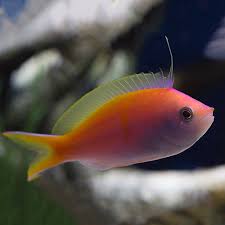
In Chinese mythology, dragons are not just majestic creatures of mysticism and power; they also serve as symbols of victory, strength, and warriors’ prowess in legendary tales. Revered as noble and courageous beings, dragons are often seen as central figures in ancient stories of warfare and triumph. Whether as protectors, allies, or powerful creatures linked to the forces of nature, dragons have a profound connection with battle and victory in Chinese folklore.
This article explores the role of dragons in Chinese myths surrounding combat, conquest, and the pursuit of victory, shedding light on their symbolic significance in the context of war and heroism.
The Dragon as a Symbol of Strength and Victory
In many legendary tales, dragons are portrayed as embodiments of untamable power, often playing key roles in battles between gods, heroes, and mythical beings. Their connection with strength and victory reflects their status as divine protectors and warriors in the celestial realm. Dragons are often shown as essential figures in tales of great conflicts where their power and wisdom influence the outcomes of wars and struggles.
The Battle Between the Dragon and the Tiger: A Tale of Duality
One of the most iconic legends involving dragons in combat is the story of the Dragon and the Tiger. In this myth, the Dragon, representing the forces of Yang (active, masculine energy), faces off against the Tiger, a creature of Yin (passive, feminine energy). The battle between the two signifies a larger struggle between opposing forces in the universe—light and dark, day and night, war and peace.
In some versions of the myth, the dragon is victorious, symbolizing the triumph of courage and determination over adversity. The Tiger’s defeat at the hands of the Dragon reflects the idea that strength and willpower can overcome even the most challenging of foes. This legendary tale embodies not only the power of the dragon but also its role in achieving victory in battle, representing the victory of Yang over Yin.
Dragons in the Tale of the Jingwei and Her Struggle Against the Sea
In another mythological tale, the dragon is featured as a key player in a grand struggle for victory against overwhelming odds. The story of Jingwei, the mythical bird who fought the sea to avenge her death, is one of endurance, defiance, and the desire for victory. Although dragons do not directly participate in this story, they are often associated with the sea, as they are the rulers of water in Chinese mythology.
The dragon’s connection to the ocean and rivers makes it a powerful symbol of overcoming obstacles and challenges. While Jingwei’s battle is fought with perseverance and defiance, it is the dragon’s power over water that represents victory over the formidable forces of nature. The dragon’s reign over the seas ties into the notion that strength and willpower can bring about ultimate victory, even in seemingly impossible situations.
The Role of Dragons in Ancient Battles: Heroes and Protectors
Dragons in Chinese mythology often serve as protectors and allies to heroes who engage in epic battles for justice and the defense of their people. These dragons are not just symbols of raw power but also carry deep moral significance, representing the virtues of courage, honor, and loyalty.
The Story of Nezha and the Dragon King
One of the most well-known legends featuring dragons in a heroic context is the story of Nezha and the Dragon King. Nezha, a popular deity and hero, is known for his bravery and strength. In this story, Nezha battles the Dragon King’s son, who has been terrorizing a local village. After a series of confrontations, Nezha ultimately defeats the Dragon King’s son, demonstrating his superior strength and determination.
In the end, the Dragon King, impressed by Nezha’s heroism, acknowledges his victory and offers his respect. The Dragon King’s role in this myth is that of a significant adversary, representing the forces of nature and authority. The battle between Nezha and the Dragon King’s family symbolizes the conflict between the heroic will of the people and the divine power of the dragons. Nezha’s victory represents the triumph of good over evil, reinforcing the theme of heroic battle in Chinese folklore.
Dragons and the Heroic Journey of the Eight Immortals
In many other stories, dragons are closely tied to the Eight Immortals of Chinese mythology, legendary figures who are renowned for their wisdom, strength, and triumphs. Dragons often appear in these stories as protectors or companions during the immortals’ epic quests to overcome evil, fight monstrous beings, or retrieve sacred treasures.
For instance, the Dragon King of the Eastern Sea plays a pivotal role in the tale of Zhongli Quan, one of the Eight Immortals. Zhongli Quan, with his mystical powers and knowledge of alchemy, confronts various supernatural entities, including dragons. Dragons in these tales often represent both the challenges the immortals face and the guardians they must defeat to achieve victory.
Dragons, as powerful creatures in Chinese mythology, are intricately connected to the concept of supernatural battles and heroism. They are not only foes to be defeated but also powerful beings who can offer assistance and protection to those with noble hearts and pure intentions.
The Dragon as a Symbol of Royal Power and Military Might
Throughout Chinese history, dragons have often symbolized royal power and military might, especially in the context of warfare and conquest. Emperors of China frequently used dragons as symbols of their authority and military prowess, and the dragon became a motif in their military strategies and imperial banners.
The Imperial Dragon of the Emperor
The dragon in the imperial court symbolized not only the emperor’s connection to divine power but also his role as the commander-in-chief in military campaigns. The emperor was considered the “Son of Heaven,” and his authority was often represented by the dragon, which was seen as a symbol of the emperor’s power to lead armies and command victories in battles.
The Five-Clawed Dragon, in particular, was a sacred symbol of imperial authority, and the emperor’s robes were embroidered with this majestic creature to demonstrate their connection to the divine right to rule. The dragon was also an emblem of victory, as it was believed that the emperor, protected by the dragon, could lead his forces to military triumphs and territorial expansion.
Conclusion: The Ever-Present Force of the Dragon in Chinese Mythology
Dragons in Chinese mythology are not mere creatures of myth and legend; they are symbols of strength, wisdom, and victory. Whether fighting against formidable foes, serving as divine protectors in battles, or representing the military might of emperors, dragons are intimately tied to the themes of heroism, conquest, and triumph in Chinese culture. Through stories of legendary figures like Nezha and the Eight Immortals, dragons embody the spirit of resilience, bravery, and victory in the face of adversity.
In Chinese mythology, the dragon represents the undying will to overcome challenges, the protection of the people, and the pursuit of ultimate victory. These powerful and mythical creatures serve as both guardians and warriors, reflecting the virtues of courage, honor, and the triumph of good over evil in the eternal struggle for justice and peace.









